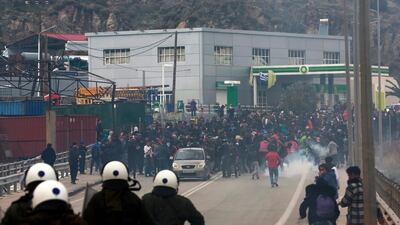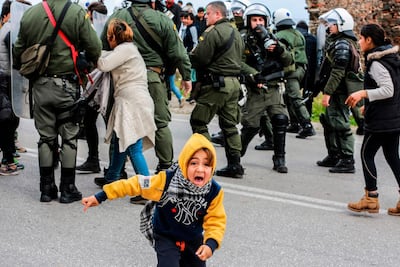Greek police fired teargas to disperse migrants demonstrating on Monday over the conditions in squalid camps on the island of Lesbos and the slow pace of processing asylum applications.
Violence broke out near the Kara Tepe camp after hundreds of people marched from the island's migrant camps to the city of Mytilene, Reuters reported.
Humanitarian groups have branded the living conditions in some of Greece's island camps as appalling.
A witness said the protesters, who held signs reading "Freedom," were mainly women and children.
Some evaded a police cordon and crossed a slope to reach Mytilene, where a group attempted to set up tents.
Lesbos has been one of the main gateways into Europe for migrants fleeing war and poverty in the Middle East and beyond. Hundreds of thousands of people passed through Greece at the peak of Europe's migrant crisis in 2015 and 2016.
Last year, more than 74,000 refugees and migrants arrived in Greece, among them 3,500 children, according to the United Nations refugees agency UNHCR. Most of them arrived on the islands Lesbos, Chios and Samos, crossing from Turkey.
The conservative government elected in July has announced plans to "decongest" the islands, shut down existing camps and replace them with holding centres that will process new arrivals and people whose asylum applications have been rejected.
The centres that will close include the Moria camp on Lesbos, which was set up to accommodate 2,850 people but hosts at least five times that number.
Last week, the government said it wants to install a floating barrier in the Aegean Sea, off Lesbos, to deter migrants arriving at its shores.


